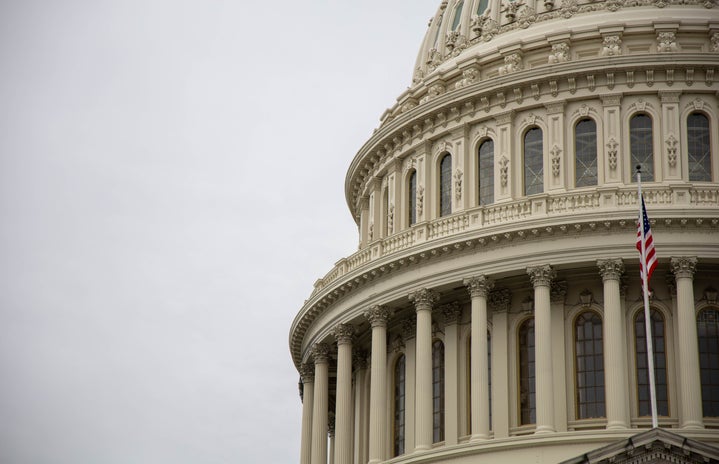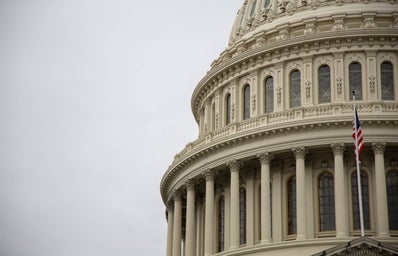I was 11-years-old, sitting on the edge of my seat in a classroom with the blinds yanked shut. I was about to attend the dreaded “reproduction” unit in my fifth grade science class. I’d been thinking about this day all year – the sixth graders had told me horror stories of what I’d learn about – but I really didn’t know what to expect.
What I thought would be a class filled with secret, mysterious information was surprisingly underwhelming. All we did was listen to vague descriptions from my teacher who clearly wished she was anywhere else and watched a long, boring documentary about how a pregnancy progresses (which clearly taught me nothing, as I left fifth grade still thinking babies were magically expelled from their mothers’ stomachs). I also remember being told my period wouldn’t hurt…I still hold a grudge.
Seventh grade was when my school gave us the “sex talk.” This time, I understood a bit more than I did in fifth grade. I remember looking at diagrams and learning about STIs (a surprising amount about STIs, when I think about it). Even though the conversation had expanded a bit, one thing was at the center of this lesson: abstinence.
Abstinence-only education is a limited form of sex education whichbasically teaches adolescents to abstain from having sex unless they are in a heterosexual marriage. This typically has roots in religion (specifically Christianity) or adults being concerned that if they educate kids, they will have sex and make unsafe decisions. However, research shows the opposite is true.
Abstinence-only education does not reduce sexual risk behaviors. Rates of teen pregnancy and STIs have not decreased with abstinence-only education, and in some cases they have actually increased. Abstinence-only sex education seems to be taught out of fear that adolescents will have sex before marriage, but it has failed – 88% of teens who signed a pledge saying they would wait to have sex ended up having it before marriage.
What I received in middle school was not abstinence-only education, but it could definitely be considered “abstinence-plus.” Abstinence-plus education teaches some information about safe sex, while still emphasizing abstinence as the best option. My school taught us about condoms and preventing STIs, but they repeatedly stated abstinence was our only option for avoiding a whole host of problems which come with having sex. At the time, I thought that was all I needed to know – don’t have sex, and don’t ask questions about it. As a result, I was deeply misinformed about sex during my teenage years.
Unfortunately, my sex education was better than most. As of 2021, only seven states mandate sex education which includes healthy relationship information. 30 states mandate sex education, but abstinence-only is included in many of their curriculums. Most concerning of all, five states – Arizona, Mississippi, Texas, Florida, and Arkansas – do not mandate sex education in any form. The bottom line is that American adolescents are not getting the information they need to make safe sex choices. So what should they be getting?
The answer is comprehensive sex education.
When I was 19, I received what I consider my first “actual” sex education session. One of my gender studies professors had a campus organization come in and give us comprehensive sex ed.
Comprehensive sex education teaches adolescents about things like consent, contraception, abortion, and what sex is like beyond one married man and woman. While comprehensive sex ed still emphasizes abstinence as the best way to avoid pregnancy and STIs (which, let’s be honest, it is), studies have shown that having this information leads to more teenagers making safe sex choices. Which is why, when I finally got sex ed in college, I was so shocked at how much I didn’t know.
My fingers flew across my keyboard as I tried to take note of everything the organization discussed with us. We learned about consent in detail, passed around sex toys made of different materials to see which were safer to use, and talked about LGBTQ+ issues surrounding sex (like misconceptions from the AIDS crisis). I left the classroom elated with all of the information it had taken 19 years for anyone to tell me.
It was a bittersweet feeling, though, because I wished I had gotten comprehensive sex ed earlier. I’m pretty sure the word “consent” was never mentioned in my middle school classroom, and it would have saved many of us from a world of trouble if we knew which contraception methods were effective and which were not.
Most importantly, the sex ed I got in college was the first time I didn’t feel embarrassed or wrong to be discussing sex. Sex ed in middle school was very hush-hush – we weren’t allowed to talk about it outside the classroom, and even inside the closed blinds, people who asked questions were clearly being judged by instructors and peers alike. Stigmatizing sex ed makes it even harder for young people to learn about things that are completely normal to wonder about.
I’m grateful that, even if it took most of my life, I did receive comprehensive sex education, and I hope someday everyone will have access to it as well. Although the internet is not always reliable and all sex ed sources need to be taken with a grain of salt, here are some places to get started.
- Planned Parenthood has information about sex available for teens, parents, or educators.
- AMAZE has animated videos directed toward young teenagers that aim to “take the awkward away from sex ed.”
- Roo is a sexual health app created by Planned Parenthood that offers free and private chats with an expert, for anyone who has a question that they may not feel comfortable asking out loud.
GLSEN’s Gender Triangle Education Guide is useful for learning about gender identity, and they have other LGBTQ+ specific resources on their website as well.





